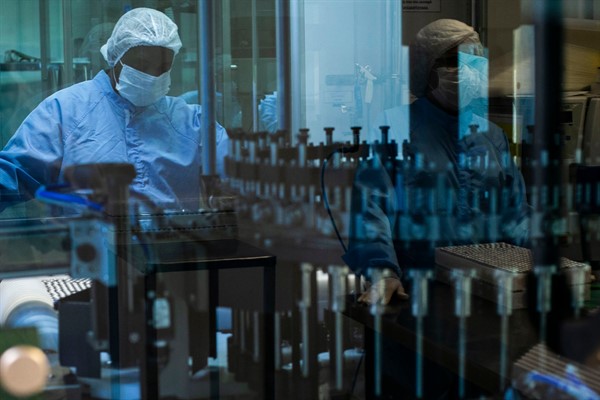Leaders of the world’s 20 largest economies are meeting virtually at the G-20 Global Health Summit on Friday, co-hosted by Italy and the European Commission. There is much that participants agree on: More coronavirus vaccine supplies are urgently needed, and the world must boost manufacturing capacity in order to produce them. But the G-20 countries may disagree on how to build that increased capacity and where it should go.
This week, U.S. President Joe Biden promised to share at least 80 million surplus vaccine doses for global use by the end of June and to launch a multilateral effort to work “with the pharmaceutical companies and partner nations to vastly increase supply, most of it here in the United States.” This approach, Biden said, will “save lives and create American jobs,” helping “beat the pandemic and leave us with manufacturing capacity here to prepare for the next crisis, the next vaccine needed.” The White House also recently backed a proposal to waive international rules on patents and other forms of intellectual property at the World Trade Organization, in order to enable certain countries to produce their own versions of the COVID-19 vaccines currently in use, such as the highly effective Moderna and Pfizer-BioNTech shots.
However, many European nations oppose the patent waiver, and the European Commission is instead planning a long-term effort to develop vaccine manufacturing hubs in Africa by 2040. Under the plan, Brussels would provide funding to create vaccine production facilities and technical assistance to create an African Medicines Agency, which would regulate the quality of vaccines produced on the continent. It is unclear, however, if this effort would also improve access to vaccines in other regions of the world, or if it would have an impact on the current pandemic.

